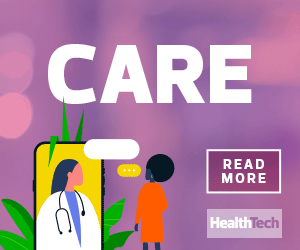Chatbots Provide Patients with On-Demand Advice
Sutter Health, a nonprofit health system based in Sacramento, Calif., provides a comprehensive online symptom-checker for patients — and it now includes COVID-19 screening questions.
A team of doctors curated the Sutter chatbot’s medical data using a probabilistic reasoning engine and a deep knowledge base that evaluates a user’s risk factors, medical history and current symptoms, says Jeff Cutler, chief commercial officer at Ada Health, a Berlin-based company that developed the platform, which is available on the Sutter website and its patient portal.
Dr. Albert Chan, Sutter’s vice president and chief of digital patient experience, describes the AI assistant as “the equivalent of having 60 doctors in your pocket to provide answers — 24 hours a day, seven days a week.”
Roughly half of the asynchronous queries occur outside of office hours, and patients’ chatbot use nearly tripled after COVID-19 hit.
A Look at AI Beyond the Pandemic
Although AI assistants don’t technically diagnose patient conditions, they have tremendous potential, says Molten, of Buoy Health.
Developers, she adds, must address issues of data quality as well as any implicit racial and gender bias: Heart attack symptoms, for example, often present differently in women.
AI assistants shouldn’t be expected to replace a doctor’s personal touch, however.
“It’s not our goal, but rather to be an additive method for helping to improve care and to drive down costs across the industry,” Molten says. “As the field matures, they will have the ability to provide a very important bird’s-eye view of illness.”











